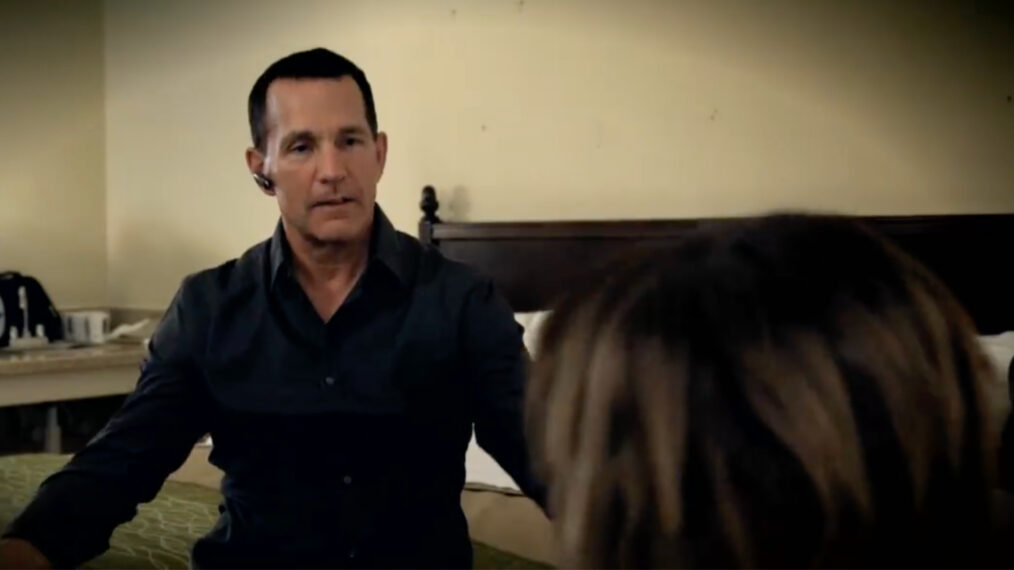‘8 Minutes’: 10 Years Ago, Sex Workers Said a Pastor Duped Them on A&E’s Controversial Show

Precisely 10 years ago — on May 5, 2015 — A&E canceled its then-new docuseries 8 Minutes midway through the first season, swiftly pulling episodes from its schedule and its website in the face of backlash.
The show was inspired by a 2013 Los Angeles Times article about former police officers and faith leaders pretending to be customers long enough to hire sex workers and then convince them to step away from that line of work. Retired Santa Ana Police Officer Kevin Brown was one of the people featured in that article and became the centerpiece of the show. It followed him as he posed as a client to get eight minutes of alone time with sex workers, then tried to convince those workers to leave the trade, offering resources to start a new life.
However, the show was swiftly met with controversy and ended five episodes in, with the network shelving the remaining three that had been made.
So where did it all go so wrong with 8 Minutes? Here’s a look at the entire sordid history of this show.
The sex workers featured in the program reportedly did not receive the support they were promised.
According to sex workers who appeared on the series, the promise of support after the cameras stopped rolling was all a ruse.
“This show, these people, it’s a disaster in my life,” 8 Minutes subject Kamylla told BuzzFeed News, adding that she only got $200 from being on the show and not the medical, dental, housing, and employment assistance she was told she’d get. “I kept on calling them, and nothing happened.”
Kamylla said she was loath to return to sex work after the show — for fear that doing so would make her ineligible for the promised resources. However, when she ran out of money for herself, her husband, and her children, she had to return to the trade. She put up an ad and was then arrested on prostitution charges.
Similarly, 8 Minutes subject Gina told BuzzFeed News she got $400 from the show — $200 for her appearance and $50 for each of four friends she referred — but gave up waiting for the production team to help her get housing and a car. “I’m not gonna beg people,” she said. “Y’all said you were gonna help. … I didn’t get a f***ing thing.”
Another woman, Donna, told the site she was a former sex worker whom producers gave $600 to appear as a current sex worker and to have her husband pose as her pimp. She was given the phone number of a purported counselor. “I don’t need a therapist, I need a place to live,” she said. “Within a month, if you can’t do what you said you were gonna do, we don’t got nothin’ to talk about.”
There were also accusations of exploitation and endangerment to the sex workers who were filmed.
Two weeks before 8 Minutes’ premiere, a collection of organizations devoted to advocacy for sex workers and survivors of human trafficking — including the Sex Workers Project, Freedom Network, Legal Aid Society, and multiple Sex Workers Outreach Project chapters — wrote to A&E and 8 Minutes producer Tom Forman, requesting a meeting to discuss the “troubling” and “unacceptable” series and find a more responsible replacement.
The signatories of that letter said Brown and 8 Minutes’ tactics “mislead the public and threaten the rights and safety of sex workers and survivors of human trafficking. In addition, they exploit the lives and images of those in the sex trade, thereby exploiting people from a marginalized and stigmatized population.”
They also said the “nonconsensual, filmed eight-minute ‘interventions’” were ineffective — if not dangerous: “While Mr. Brown may have experience as a vice cop and a pastor, by pretending to be a client interested in sex and surprising sex workers with a filmed intervention, he is not creating the trust and safety needed for individuals to make complicated life decisions. … The decision to engage in sex work or to leave sex work is complex and personal, and should never be used as entertainment fodder.” In other words, the signatories said, the problems of the sex trade cannot and should not be solved on reality TV.
Meanwhile, more than 2,300 people signed a Change.org petition asking A&E not to air 8 Minutes, calling the show degrading, invasive, and manipulative.
Plus, the show’s narrative was problematic.
As Alana Massey of the Sex Workers Outreach Project of New York City said in a WNYC interview: “They used terms like ‘the life’ for everyone who is participating in sex work. They use the word ‘victim’ for every woman that they encounter. They use the term ‘trafficker’ for people who are presumed to be facilitating prostitution and sex work in a way that is implied to be very criminal and very coercive.”
Massey said calling all women participating in sex work “victims” means there’s no differentiation between sex work resulting in rape and sex work involving a consensual exchange of money and services. “Erasing the reality of these differences is really dangerous to people who are victimized,” Massey said, adding that there needs to be a line drawn between anti-prostitution efforts and anti-trafficking efforts.
What 8 Minutes wasn’t doing was acknowledging the systemic challenges these women face and “acknowledging the humanity and the complexity and the agency they do have in their lives, even when some of that agency has been compromised,” Massey said. “On 8 Minutes, [producers] come in with a narrative, and they retrofit it to these women’s lives. And that’s unfair.”
There were major permissions problems at play, too.
Forman, who’d also produced the controversial series Kid Nation and Sex Box, said in an Entertainment Weekly interview that the 8 Minutes production team asked the sex workers for permission to show them on screen. But Gina told BuzzFeed News the production team did not offer the choice of face-blurring, which she would’ve preferred. A sex worker named Jazzy told the site she asked that her face be blurred and it wasn’t. And one named Mya said when she requested face-blurring, the production team offered her more money. Mya asked for $1,000, and they offered her $500 or $600, she said, which she took because she needed the money, and “they knew I needed it.”
The show was eventually subject to a lawsuit.
Ultimately, on May 5, 2015 — 10 years ago now — A&E canceled 8 Minutes midway through the first season, pulling episodes from its schedule and its website. Safe Passage OC, the nonprofit organization whose work with Brown inspired the L.A. Times article that inspired the show, said on Facebook it was no longer affiliated with Brown or 8 Minutes, according to The Washington Post. Brown and Forman both had no comment for the Post at that time, other than Brown saying he didn’t read the BuzzFeed News report.
Later that year, a group of women who appeared on 8 Minutes sued A+E Television Networks, Relativity Media, and Long Pond Media in district court in Texas, alleging that they only received a little money instead of the health care, employment, and rehabilitation promised to them on the show, per The Wrap. While the show presented Brown’s encounters with the sex workers as surprises, the plaintiffs said they were contacted days and sometimes even weeks before filming. At last report, the suit had been stayed pending the bankruptcy of Relativity Media, as Variety reported. But the stain on A&E’s reputation remained.







